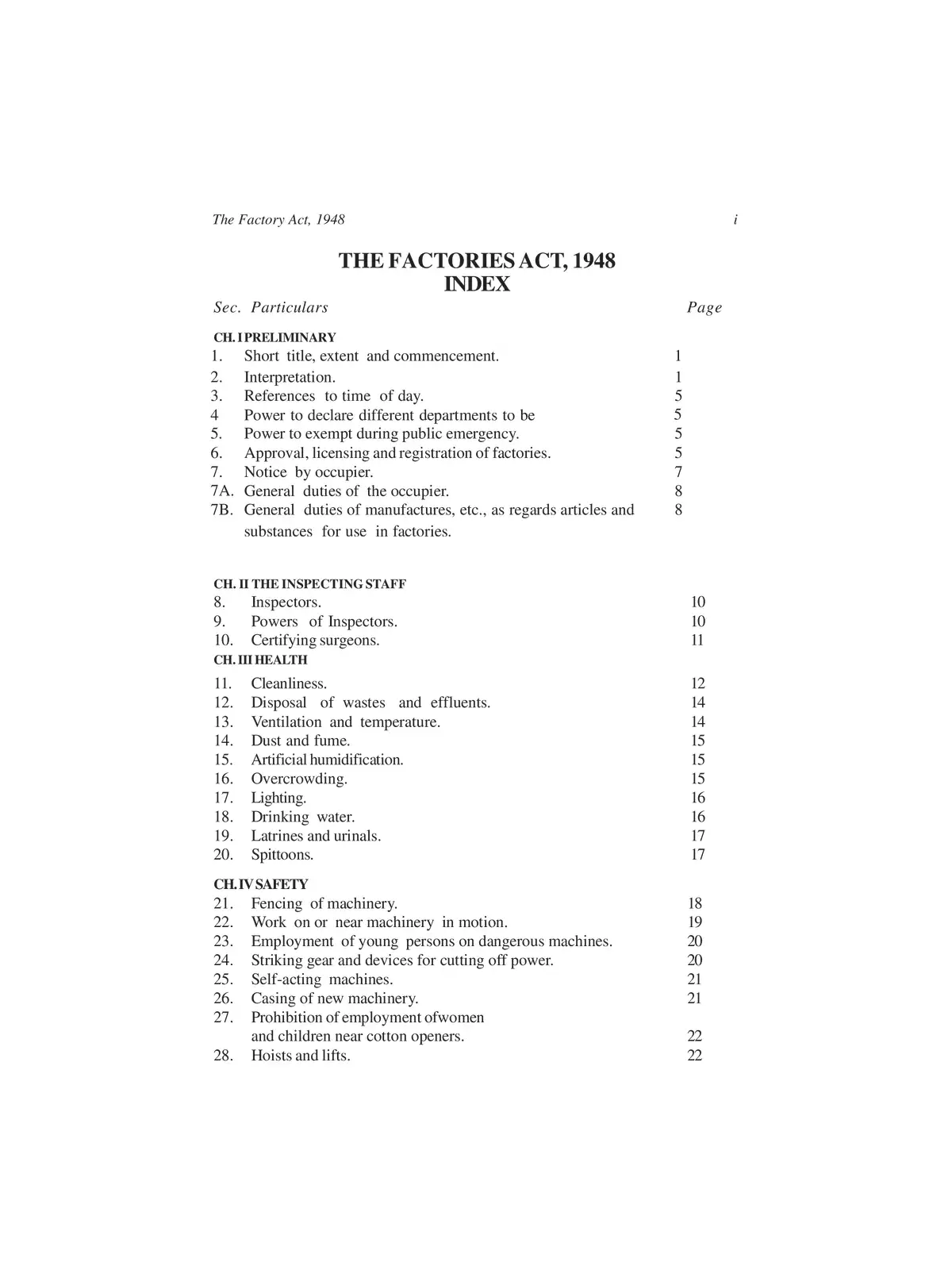Factories Act, 1948 - Summary
The Factories Act, 1948 is an essential law in India that aims to protect employees’ rights and ensure their safety and welfare at work. This act plays a crucial role in preventing exploitation and providing a healthy working environment for everyone. With its various rules and regulations, the Factories Act, 1948 safeguards workers across different industries.
Broadened Definition of Occupier
The definition of ‘occupier’ under the Factories Act, 1948 has been expanded through amendments and court interpretations, especially concerning hazardous activities in factories. This clearer definition helps better protect factory workers during their daily operations and improves their working conditions.
Penalties for Violations under Factories Act, 1948
When the rules of the Factories Act, 1948, or any regulations made under this act are violated, it is considered an offense. Here are the penalties that can apply:
- Imprisonment for up to one year
- A fine of up to one lakh rupees
- Both fine and imprisonment may also be imposed
Significance of the Factories Act, 1948
The Factories Act, 1948 plays a vital role in ensuring that employees’ interests are protected. This legislation imposes various duties and responsibilities on both factory owners and factory managers. Its primary goal is to prevent the exploitation of workers while prioritizing their safety, hygiene, and overall welfare. The act’s importance is further emphasized by its focus on identifying and addressing hazardous practices and conditions within factories, providing a clear framework for maintaining a safe working environment.
To gather more information about this act, you can download the Factories Act, 1948 in PDF format using the link provided below. 📥
